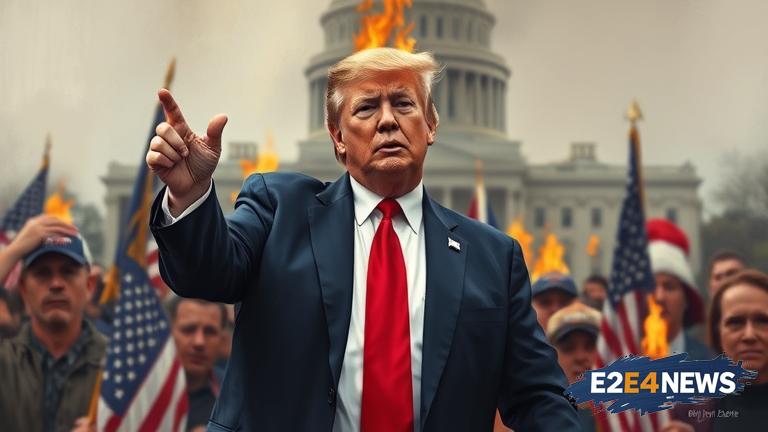In a move that has sparked controversy and debate, former President Donald Trump has unveiled a proposal to outlaw flag burning in the United States. This decision comes despite a longstanding Supreme Court ruling that has consistently upheld the right to burn flags as a form of protected speech under the First Amendment. The Supreme Court’s decision in Texas v. Johnson, which was handed down in 1989, established that flag burning is a form of expression that is safeguarded by the Constitution. However, Trump has argued that flag burning is a despicable act that disrespects the nation and its symbols. He has vowed to take action to prevent it, citing the need to protect American values and traditions. The proposal has been met with fierce opposition from civil liberties groups and free speech advocates, who argue that it would infringe upon fundamental rights guaranteed by the Constitution. They contend that the government should not be able to dictate what forms of expression are acceptable, and that the Supreme Court’s ruling should be respected. On the other hand, some supporters of Trump’s proposal argue that flag burning is a reprehensible act that undermines national unity and pride. They believe that the practice should be prohibited in order to preserve the dignity and respect of the American flag. The debate surrounding flag burning has been ongoing for decades, with some arguing that it is a necessary form of protest and others claiming that it is a form of hate speech. The Supreme Court has consistently ruled in favor of the right to burn flags, citing the importance of protecting free speech and expression. In addition to the Texas v. Johnson decision, the Court has also ruled in favor of flag burning in subsequent cases, including United States v. Eichman in 1990. Despite these rulings, Trump’s proposal has sparked renewed debate about the issue, with some arguing that the time has come to reexamine the Supreme Court’s decisions. However, others argue that the Constitution is clear on the matter, and that any attempts to ban flag burning would be unconstitutional. The proposal has also raised questions about the limits of free speech and the role of government in regulating expression. While some argue that the government has a responsibility to protect the nation and its symbols, others believe that this responsibility should not come at the expense of fundamental rights. As the debate continues, it remains to be seen whether Trump’s proposal will gain traction or be struck down by the courts. The outcome will have significant implications for the future of free speech and expression in the United States. The proposal has also sparked international attention, with some countries criticizing the move as an attack on democratic values. The United Nations has weighed in on the issue, stating that freedom of expression is a fundamental human right that should be protected. The European Union has also expressed concerns about the proposal, citing the importance of upholding democratic principles. In the United States, the proposal has been met with widespread criticism from civil liberties groups, including the American Civil Liberties Union (ACLU). The ACLU has argued that the proposal is a clear infringement on the right to free speech and expression, and that it would set a dangerous precedent for government regulation of expression. Other groups, including the National Association for the Advancement of Colored People (NAACP) and the Anti-Defamation League (ADL), have also spoken out against the proposal. As the debate continues, it is clear that the issue of flag burning is complex and multifaceted. While some argue that it is a necessary form of protest, others believe that it is a form of hate speech that should be prohibited. Ultimately, the outcome will depend on the courts and the Constitution, which have consistently upheld the right to free speech and expression. The proposal has also raised questions about the role of the Supreme Court in interpreting the Constitution. While some argue that the Court’s decisions should be respected, others believe that the Court has overstepped its authority in ruling on the issue. The debate surrounding flag burning is likely to continue, with both sides presenting compelling arguments. However, it is clear that the Constitution and the Supreme Court’s rulings should be respected, and that any attempts to ban flag burning would be unconstitutional. The proposal has also sparked concerns about the impact on social justice movements, which often rely on forms of protest and expression to bring attention to their causes. The Black Lives Matter movement, for example, has used flag burning as a form of protest against systemic racism and police brutality. The proposal has been criticized for its potential to stifle these movements and limit the ability of marginalized communities to express themselves. In conclusion, the proposal to ban flag burning is a complex and contentious issue that raises important questions about free speech, expression, and the role of government. While some argue that the practice is a necessary form of protest, others believe that it is a form of hate speech that should be prohibited. The outcome will depend on the courts and the Constitution, which have consistently upheld the right to free speech and expression.
